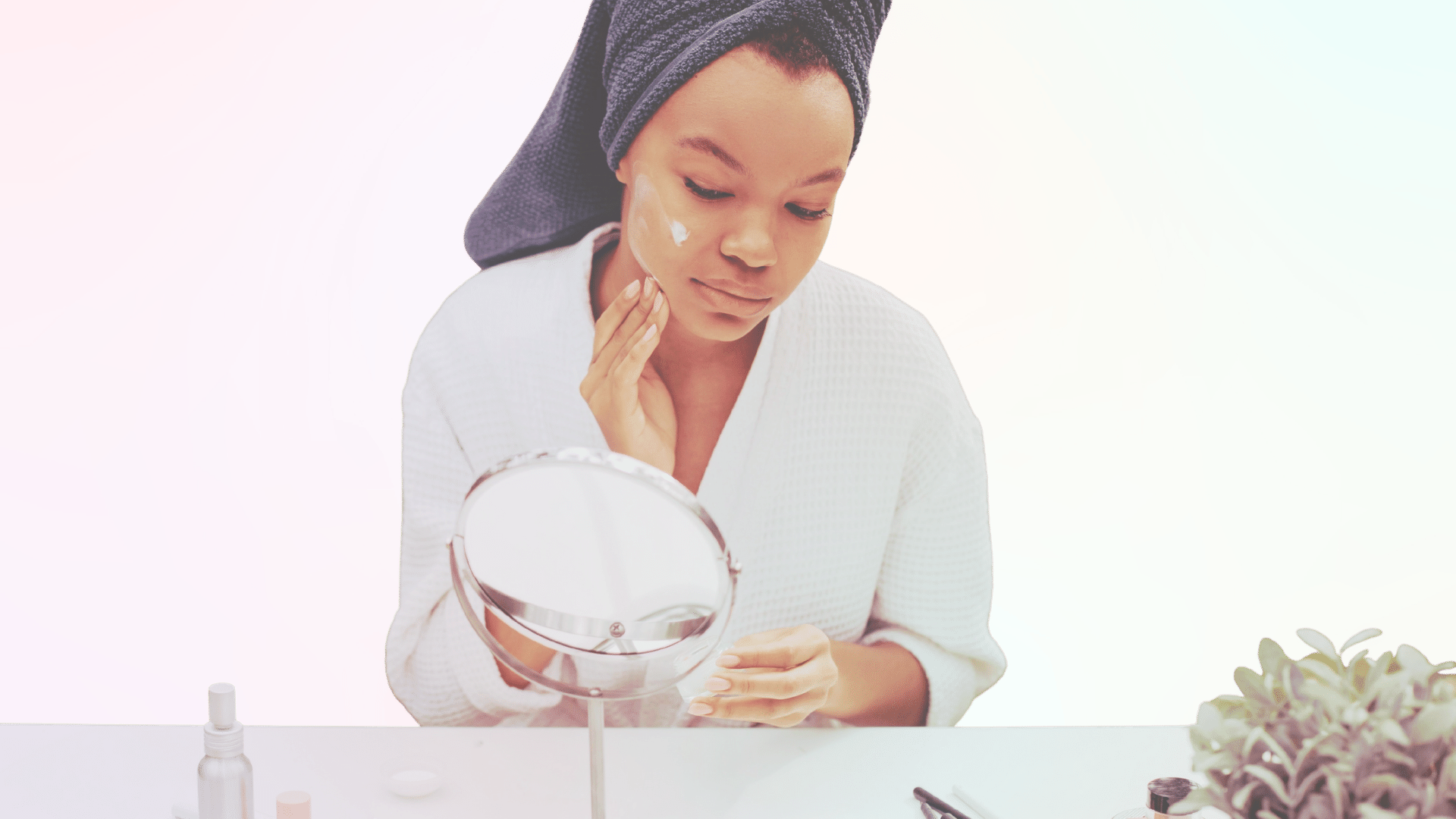 In part one of this post designed to give our readers a good idea of the nature of the problem with many traditional skin care brands, we highlighted some of the damaging effects that commonly-used ingredients can have on your skin. While we encourage you to read the entire post when you get the chance, the long and the short of it is that the FDA takes a passive approach to regulating ingredients found in cosmetic and skin care products. While the FDA doesn’t strictly allow ingredients that have been deemed as dangerous by the powers-that-be to be included in products, the FDAs legal authority is different from their authority over other products. Cosmetic products do not need FDA premarket approval, with the exception of color additives.
In part one of this post designed to give our readers a good idea of the nature of the problem with many traditional skin care brands, we highlighted some of the damaging effects that commonly-used ingredients can have on your skin. While we encourage you to read the entire post when you get the chance, the long and the short of it is that the FDA takes a passive approach to regulating ingredients found in cosmetic and skin care products. While the FDA doesn’t strictly allow ingredients that have been deemed as dangerous by the powers-that-be to be included in products, the FDAs legal authority is different from their authority over other products. Cosmetic products do not need FDA premarket approval, with the exception of color additives.
All that to say this: do you trust skin care brands that are preoccupied with turning a profit to make sure that every single ingredient they put in their products is safe to use? Have you ever heard of big-name-brands asking forgiveness instead of permission? It wouldn’t take very long to find a handful of examples of product-recalls (along with the brand’s expressed regret over the mistake that was made).
Here at Aleavia Plant-Based Prebiotic Skincare, we believe consumers need to do their due-diligence when it comes to understanding exactly what we are applying to our bodies, since it sure seems like many-a-skin-care-brand is more occupied with selling their products rather than discovering what our skin really needs to be healthy and radiant.
Common Harmful Cosmetic Ingredients
Without further ado, let’s dive back into the highlighting of particular ingredients you should think about avoiding. Later on in this article, we’ll take the time to shine the spotlight on the seven organic ingredients we use in our vegan skin care products at Aleavia, but before we get to that, we’d like to advise our readers concerning some ingredients to keep an eye out for in your shampoo, skin care products, toothpaste, soap, deodorant, and beyond.
1,4-Dioxane
Classified as a type of ether, 1,4-dioxane is a colorless liquid which can be found in a wide range of baby products, including baby shampoos, baby soaps, bubble bath, curl creams, hair relaxers, detergents, face creams, anti-aging products, and beyond. In fact, the Environmental Working Group has stated that this “ingredient” is found in 22 percent of all personal care products, along with 67 percent of all children’s bath products!
This is quite alarming for the following reason: 1,4-dioxane is an animal carcinogen that has been believed (by the EPA) to contribute to the likelihood of cancer in humans. We don’t want to get too far into the negatives, but allow us to drive this point home: in a study where mice and rats ingested water which contained this ether, the animal subjects developed liver and nose cancer, with damaging effects on their kidneys as well. Animal cruelty is one thing, but the fact that this substance is found in over a third of all children’s bath products is simply unbelievable. Look out for ingredients like (polyethylene glycol (PEG), polyethylene, ethoxylated ingredients, polysorbate, sodium laureate sulfate, oxynol, or oleths.
For the record, all Aleavia skin care products are cruelty-free.
Formaldehyde
The fact that formaldehyde is included in a wide range of cosmetic products just about drives us crazy here at Aleavia. Formaldehyde and formaldehyde-releasing preservatives (FRPs) are included as ingredients in skin care products for the specific purpose of preventing the growth of bacteria. If you are familiar with Aleavia and our line of prebiotic skin care products, you might also know that our organic skin care brand is dedicated to feeding the beneficial bacteria and microbes found on your skin, in order to rebalance and hydrate the skin.
So, as you can imagine, when brands decide to “infuse” their products with a chemical that has been classified as a human carcinogen by the International Agency for Research on Carcinogens (IARC), it vexes us a little bit. Formaldehyde has been connected to allergic skin reactions, nasal cancers, and problems with the immune system. You can find FHPs in body washes, conditioners, cleansers, eye shadows, nail polish, and shampoos.
Fragrances
Yes, tragically, it’s quite possible that your favorite cosmetic product’s “secret fragrance formula” might actually be chock-full of conspicuous chemicals worth investigating. Many fragrance mixes are connected with a variety of issues, among which are respiratory distress, reproductive system issues, and allergies — according to the Environmental Working Group Skin Deep Database. Fragrance mixes are often found in perfume, cologne, moisturizers, body wash, shampoo, and conditioners.
By contrast, all of our plant-based skincare products at Aleavia are fragrance-free.
Dyes
Synthetic dyes and colors are also problematic, as you might have been able to guess already. You can tell if a product contains artificial coloring by looking for the labels “FD&C” or “D&C.” When you see these labels, it’s an indicator that the synthetic colors used are likely derived from coal tar or petroleum sources. Wouldn’t you know it — they are being studied to see if they should be deemed human carcinogens! There is also ongoing research based on the role they play, if any, concerning ADHD in children and skin irritation more generally. And that’s just in the USA; the European Union has already banned such synthetic colors altogether.
Again, Aleavia plant-based skincare products are entirely free of all dyes. For this reason, and many others, our organic skin care line is safe for everyone in the family — even baby!
Mineral Oil
The last ingredient we’ll be highlighting in today’s post is that of mineral oil used in cosmetics. While it might sound innocuous, or even health-promoting, the majority of mineral oil used in cosmetic and skin-care products is derived from petroleum. Found in baby oil, Vaseline, and other similar products, many believe that mineral oil clogs pores and disrupts your body’s ability to expel toxins. As you might already know, such trouble can lead to issues with acne and other significant skin problems.
While there is significant debate within the cosmetic industry as to whether mineral oil really is problematic, we’d recommend erring on the side of caution — which also happens to be on the side of the organic. Try coconut oil, avocado oil, or other natural alternatives to find an oil that will actually promote your health, as opposed to whatever is happening with the petroleum-based product.
What If Seven Plant-Based Ingredients Could Change The Life Of Your Skin?
Believe it or not, there remains a wealth of disconcerting cosmetic ingredients which we did not have time to list in today’s post. To be honest, it can be a little bit draining when you consider all of the harm that these products can do on a daily basis to so many unsuspecting consumers.
We just want healthy, hydrated skin! Is that so much to ask?
At Aleavia, we believe the answer is no, that’s not too much to ask. In fact, in response to the plethora of ineffective and unsafe skin care products that have become so popular, Aleavia has developed our own line of organic, plant-based skin care products that root themselves in the science of prebiotics. Our products feed the good bacteria on your skin, rather than wiping out the good with the bad. Check out our dedicated resource on prebiotic skin care to learn more.
Since today’s article is about skin care ingredients, we’ll leave you with a description of our own seven, plant-based ingredients that make up Aleavia.
- Filtered Water
- Coconut Oil
- Aloe Vera
- Dead Sea Salt
- Acadian Sea Kelp
- Citric Acid
- Plant Glycerin
These ingredients work in tandem to gently remove toxins, oil, and dirt on your skin while feeding the beneficial microorganisms on your skin, whereby they preserve your skin’s natural protectants. Our organic skin care brand is dedicated to providing our customers with products that nourish the skin on a cellular level, sloughing off dead skin cells while infusing it with moisture. Aleavia Prebiotic Skincare will balance the pH level of your skin, allowing your skin to breathe when used regularly.
Rest assured that Aleavia vegan skin care products are:
- 100% natural and organic
- Non-toxic and GMO-free
- Chemical- and paraben-free
- Environmentally-friendly
- Free of all fragrances and dyes
- Safe for everyone in the family, even baby
- Vegan
- Always cruelty-free
Shop Aleavia Today!
We hope you’ve found today’s post more enlightening than anything else. We have a passion for providing our customers with the best skincare products possible, and a big part of letting our prospective customers know about Aleavia is making sure you know about the very real risks found in traditional skin care and cosmetic products. Learn more about our story, and shop Aleavia today!





